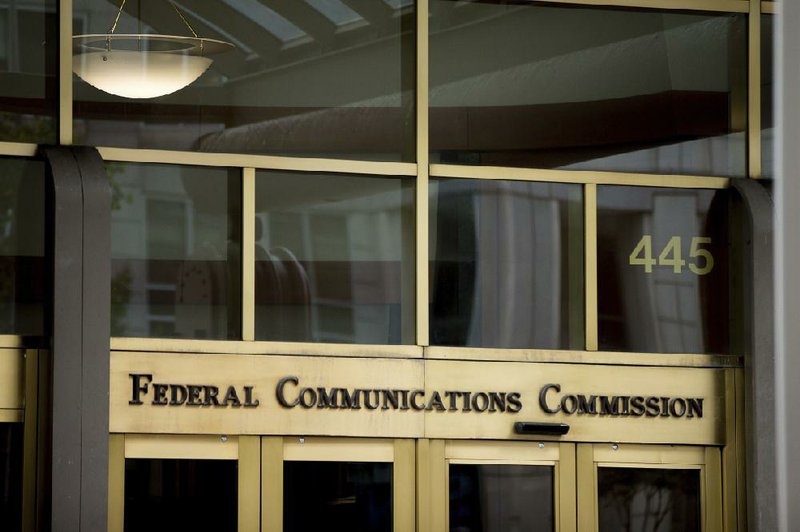NEW YORK -- U.S. regulators have proposed fining the four major U.S. phone companies more than $200 million combined for improperly disclosing customers' real-time location to other companies.
The proposed fines by the Federal Communications Commission amounted to $91 million for T-Mobile; $57 million for AT&T; $48 million for Verizon; and $12 million for Sprint. The amounts vary based on how long each company sold the user data and how many companies and organizations to which it sold the data. The phone companies can object, and the amounts could change.
Critics said the FCC took too long, and the proposed fines were too low.
"Instead of meetings its obligation to come down hard on the wireless carriers that are guilty in this case, the FCC dragged its feet and issued penalties that let these companies off easy," said Sen. Edward Markey, D-Mass.
[Video not showing up above? Click here to watch » https://www.youtube.com/watch?v=e8wgIqzHPHU]
Lisa Hayes of the advocacy group Center for Democracy & Technology said the FCC's "weak enforcement response" demonstrates why the U.S. needs a comprehensive privacy law.
Location data makes it possible to identify the whereabouts of nearly any phone in the U.S. within seconds.
According to published reports, phone companies were selling access to such data to little-known companies such as LocationSmart and Zumigo. These data brokers then sold the information to other "location-based" services, like prison-communications company Securus. The FCC said the phone companies failed to ask customers for consent for what companies like Securus were doing, or make sure that those companies were getting an OK from customers.
The FCC action deals with phone companies' practice of providing data to third parties with whom users have no direct contact. It's unrelated to users providing locations directly with apps and other services.
Federal law requires that telecommunications companies protect the confidentiality of some customer data, including location information. The FCC said that those companies must try to protect against unauthorized attempts to gain access to this data and that they or those acting on their behalf must get consent from customers before using it.
The FCC opened its investigation after a 2018 report showed Securus allowing such abuses as letting a sheriff track a judge and others, thanks to information that ultimately came from data broker LocationSmart.
Verizon, AT&T, Sprint and T-Mobile pledged to stop providing information on U.S. phone owners' locations to LocationSmart, Zumigo and other data brokers later that year. But Congress questioned in early 2019 why such disclosures by some carriers seemed to have continued, as detailed in a report on the Motherboard website about bounty hunters gaining access to the data in January 2019.
AT&T and T-Mobile said then that they would stop selling all location data from mobile phones to brokers by March 2019.
T-Mobile says it took "quick action" after it learned its location-data program was being abused and ended the program in February 2019. The company said that it plans to dispute the FCC's conclusions and fines.
The other phone companies didn't immediately return calls for comment.
Also Friday, the FCC approved a plan to pay Intelsat SA and other satellite providers to give up airwaves so they can be redeployed for the fast 5G mobile networks being rolled out.
The commission on a 3-2 vote approved Chairman Ajit Pai's plan for as much as $9.7 billion to clear the frequencies, with the money coming from bidders expected to include large telephone companies such as Verizon Communications Inc.
The action "will help deliver 5G services to consumers across our country and promote our global leadership," said Pai.
The satellite companies use the spectrum to beam TV and radio programs to stations, but say they can give up part of it while still serving customers on frequencies they retain, in part because they would use new satellites to carry data.
The FCC will sell the airwaves at a public auction. Pai earlier proposed that Intelsat get as much as $4.85 billion for clearing airwaves quickly. The FCC in its vote didn't say if that figure had changed.
The commission didn't immediately release the text of its order, leaving it unclear if commissioners had changed proposed payments during deliberations ahead of the vote at the agency's monthly meeting in Washington. Pai said the record didn't support substantially increasing Intelsat's share.
It expects to release the text early next week, perhaps on Monday.
SES and Telesat, also satellite providers, in a joint statement congratulated Pai. SES earlier opposed Intelsat's bid for a bigger payment.
FCC Commissioner Geoffrey Starks, a Democrat, said disagreement among carriers leaves "a very real possibility" that the agency will end up "stuck in litigation and with any auction on indefinite hold."
Luxembourg-based Intelsat in a filing asked for 60% or more of the pot. SES, which also would give up airwaves, said in a filing that it should get as much as Intelsat, compared with 41% as proposed earlier by the FCC.
Information for this article was contributed by Tali Arbel of The Associated Press and by Todd Shields and Scott Moritz of Bloomberg News.
Business on 02/29/2020
